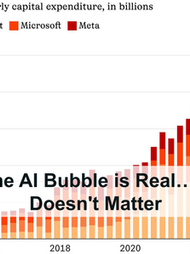Revolutionize Your Thoughts with Google's New Brain-Computer Interface
- Adrien Book

- Jan 15, 2023
- 3 min read
Google has just announced a groundbreaking new technology that promises to change the way we think and communicate: a brain-computer interface (BCI). This cutting-edge technology allows users to connect their brains directly to a computer, allowing for unprecedented control and connectivity.

According to Google, their BCI is able to read and interpret neural activity in real-time, allowing users to perform a wide variety of tasks simply by thinking about them. This includes everything from typing on a computer to controlling a robotic arm, all with minimal training and setup.
“We are truly on the cusp of a revolution in human-computer interaction,” said Google CEO Sundar Pichai in a press release. “Our BCI technology will not only make it easier for people to interact with their devices, but it will also open up new possibilities for people with disabilities, allowing them to regain independence and control over their lives.”
One of the key features of Google’s BCI is its ease of use. Unlike other brain-computer interfaces on the market, which often require invasive surgery and extensive training, Google’s BCI is non-invasive and can be used by anyone with minimal setup and training. The BCI uses a combination of electroencephalography (EEG) and near-infrared spectroscopy (NIRS) to measure neural activity, making it a safe and non-invasive way to connect to a computer.
Another major advantage of Google’s BCI is its high level of accuracy. According to Google, their technology is able to accurately interpret neural activity with minimal error, which is important for applications such as controlling prosthetic limbs or assisting people with disabilities. With the ability to interpret neural activity in real-time, users will be able to control devices with a high degree of precision, making it a powerful tool for people with physical disabilities.
The BCI has a wide range of potential applications, from gaming, to controlling smart home devices, to even operating heavy machinery, the possibilities are endless. With this technology, people will be able to interact with their devices in new and exciting ways, making it a key technology for the future of human-computer interaction.
However, like any new technology, there are also some potential downsides to consider. One concern is the privacy and security of brain data, and the potential for it to be hacked or used for malicious purposes. Google has assured that they have taken all necessary steps to secure the data and protect user privacy. There is also the question of the long-term effects on the brain, as more research is needed to understand the impact of prolonged use of such interfaces.
Despite these concerns, Google’s BCI is already being hailed as a game-changer in the tech industry. It has been compared to other BCIs on the market such as Neuralink and Facebook’s Building 8, which are still in the early stages of development. Google’s BCI is expected to be made available to the public in the near future, and it will be interesting to see how it will be adopted and integrated into our daily lives.
In conclusion, Google’s new brain-computer interface technology has the potential to revolutionize the way we interact with technology and could bring new level of accessibility for people with disabilities. It has the potential to change lives and improve the way we interact with the world around us. However, it is important that privacy and security concerns are addressed and more research is done on the long-term effects of prolonged use of such interfaces. Google’s brain-computer interface is a huge step forward in the field of human-computer interaction and it will be exciting to see how it will be used in the future.
Disclaimer
This story is fake. None of it was written by a human. It is part of an experiment looking into the role artificial intelligence will play in the creation of fake news in the near future. Results will be published on the 1st of February. Make sure to sign up to get them.























Dive into the chaotic world of Ragdoll Archers! This game lets you challenge friends or AI in hilarious physics-based battles. Master your bow, launch your ragdoll character, and dominate the arena. Play Ragdoll Archers online for a ridiculous showdown where anything can happen!
Thank you for your wonderful posts, blogger! I always enjoy your content and hope this site continues to thrive. I'd also like to share a game I've been playing a lot lately: Drift Boss play online.
slot gacor
toto slot
akun toto
LINK AKUNTOTO
akuntoto daftar
login akuntoto adalah situs toto baru dengan toto slot & toto togel unggulan dengan prediksi togel terbaik di Indonesia.
slot gacor
slot777
Situs slot gacor
SLOT777
slot88
slot88
slot gacor merupakan situs toto slot paling gacor dengan menyediakan provider slot unggulan gampang maxwin hari ini.
TOTO SLOT
AMAVI 5D LOGIN
LINK AMAVI5D
amavi5d daftar
amavi5d
AMAVI5D LOGIN
AMAVI5D LINK ALTERNATIF memberikan pelayanan terbaik dan aman untuk para membernya, yaitu dengan kemudahan akses slot dan togel online selama 24 jam non stop.